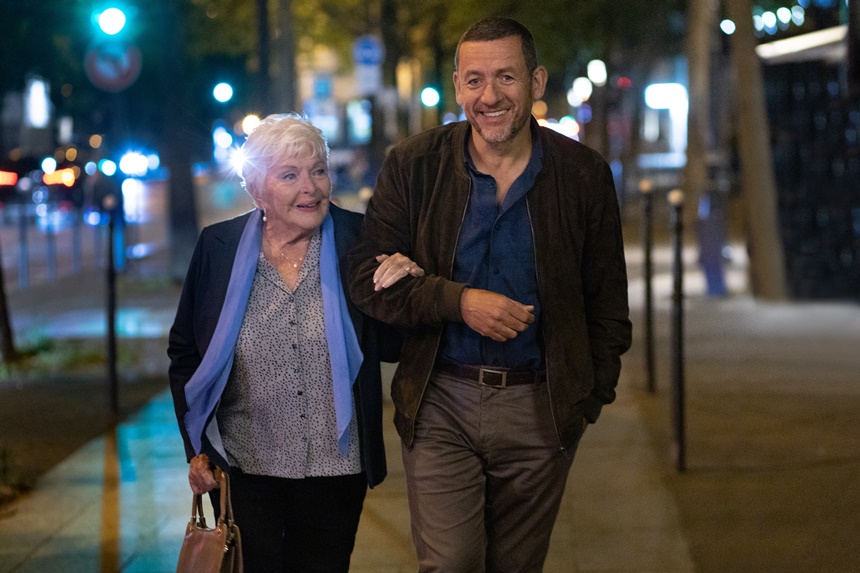Driving Madeleine
⭐️ ⭐️ ⭐️ ⭐️
Run Time: 1 hour 31 minutes
Stars: Line Renaud, Dany Boon
Writers: Cyril Gely, Christian Carion
Director: Christian Carion
Reviewed at the Toronto International Film Festival
Delicate as a soufflé, sentimental as a Michel Legrand love song, Driving Madeleine largely confines itself to the cozy interior of a Paris taxi, warming us with the pleasurable company of a sweetly smiling nonagenarian and her appealingly grumpy driver.
But this is no joy ride: 92-year-old Madeleine (legendary singer Line Renaud), alone in the world with no relatives to look after her, is on a one-way trip to a nursing home. The place is across Paris from the house she loved, and she has hired a cabby named Charles (a hangdog Dany Boon) to usher her there, stopping along the way at spots to relive various episodes of her long, eventful life.
Said life includes, but is far from limited to, a wartime romance, a love child, an abusive husband, time in the slammer, and emergence as a French feminist icon. As for Charles, at age 40 or so he is a struggling travailleur, barely eking out a living to support the wife and daughter he loves more than anything, one traffic violation away from losing his license.
Because the film’s English-language title conjures memories of Driving Miss Daisy — the thematically similar 1989 comedy-drama starring Jessica Tandy and Morgan Freeman — I prefer its original name: Une Belle Course, which translates to “A Beautiful Journey.” As driver and passenger share their stories, it’s clear there are voyages aplenty here besides the pragmatic one at hand (which, geography be damned, somehow manages to pass nearly all of Paris’s landmarks).
It’s difficult to convey the enduring love affair France has carried on with Renaud, who started out in Paris’s Folies Bergère and by the 1950s was among the county’s most beloved singers. (To see what all the excitement was about, check her out in the 1952 musical Paris Still Sings, charming her way from shopgirl to society queen in the course of a single song.)
In casting Renaud as his leading lady, director/cowriter Christian Carion not only gains the services of a seasoned performer, but also enlists a woman who, like Madeleine, embodies the unfathomable social changes that have shaped Europe and the world over the past century.
Boon, among France’s most essential character actors, plays a familiar type here: The hard-working, rough-edged everyman whose heart of gold is being smelted into lead by an indifferent world. But Boon brings a depth of kindness to Charles that makes us love him from the start. He’s not a reluctant companion to Madeleine; practically from the moment they meet, Charles offers first a sweet kind of deference, then growing affection for this woman who, if not for him, would have no one at all.
As he showed in his deeply affecting 2005 World War I drama Joyeux Noel, director Carion knows precisely when to pull the heart strings — and when to snip them free. Anyone who has been watching movies for a while has no doubt how this story is going to end, and Carion offers no unexpected twists.
Like most trips, this one has a predictable path. But the joy — along with the lump that will inevitably come to your throat at the end — is all in the journey.
Become a Saturday Evening Post member and enjoy unlimited access. Subscribe now




Comments
It really does sound wonderful Bill. Definitely a film worth seeing and being preserved.
Sounds wonderful! Thank you, Bill.